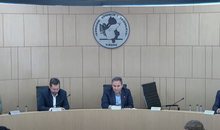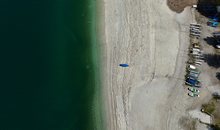
 Flash News
Flash News
Flames engulf the Darëzeza forest massif in Fier
Serious accident in Vlora, vehicle collides with two young people, one of them dies
Durrës Border Police find two tourists on a speedboat, one dead, the other in serious condition
Car hits motorbike, 25-year-old dies in Bilisht
Details from the murder in Tale, it is suspected that Pjetër Kaza was shot in the chest and head
The debate on the construction of the Skavica hydropower plant: Drini i Black, a blessing or a curse?

Residents of the Black Drin Valley have been opposing the construction of the Skavica hydropower plant for years. If this project were to be realized, it would sink more than 30 villages and isolate dozens more.
Fushë-Alia is one of the most fertile villages of the Black Drin valley, in Dibër. But the agricultural lands with abundant production of grains, fruits and vegetables are at risk of being submerged by the waters of the Black Drin River. If the Skavica hydropower plant were to be built, it would disappear from the map and isolate almost 40 villages of this region. "This is about mass displacement of the population, not three houses, not four houses, not one village but over 30 villages that will be moved. The worst possible problem is the psycho-social problem of man. People think: who was I , what I was, how I had built my life and where I ended up now. Not even talking about the economic side, which is very important. Here our ancestors lived, lived, built. I too have worked all my life, built the house from agriculture, while now... nothing. It's as if I set it on fire, it burned, there is nothing," says Dalip Alia, a resident of the village.
In the best case, the construction of Skavica means the displacement of more than 8,000 inhabitants of the area, as the water would consume an area of 52 km/square. In addition to the villages that would sink, dozens more would be isolated and suffer serious consequences. One of them would be Chidhna. For Selim Dacin, a beekeeper and agronomist, in case of construction of Skavica, he would also leave his village. "Here, the fog has lasted for many years, lasting 8-9 days, or 10 days, during a continuous period. With Skavica also coming, the fog will increase. As it increases, agriculture drops to zero. So, vegetables begin to spoil, spoil the vineyards, the apples, the plums... the bees also spoil. Even if we were to go up to the mountain, they spoil there too, they get damaged there too" - he expressed concern.
Skavica, still a "dream"
Skavica is located in the Kukës district, but the consequences of the hydropower plant that is planned to be built there, on the Drin River, will be felt in Dibër, the district with which it borders. Initially the project was supported by the Western Balkans Investment Fund (WBIF) and these were the two scenarios that were presented to the public: the large Skavica would cost 510 million euros, with a dam height of 443 meters above sea level, or the other version would was worth 308 million euros, with a dam height of 388 m above sea level. On June 3, 2020, during a presentation of the initial project, the Minister of Infrastructure and Energy, Belinda Balluku, was very enthusiastic about the project. "In 2017, the Albanian government applied to the WBIF, for the WBIF fund to do a proper study of this project. Giving us today a result in our hands, the first phase of this project which offers us some of the scenarios for the realization of to this great dream."
But the dream that started in Europe suddenly ended in the United States of America. In the fall of 2020, the government signed a memorandum of cooperation with the Americans of the "Bechtel" company for Skavica. In the agreement, Bechtel committed to find the financing of a credit line which would then be paid by KESH. The appearance of the Americans on the scene caused dissatisfaction in Brussels. In January 2021, the European Union officially withdrew from funding Skavica, although it had provided the first 1.5 million euros in the form of a grant from the Western Balkans Investment Fund. Two years later, a spokesperson for the European Commission responded thus to our interest: "The Skavica hydropower plant project, which is being prepared, is expected to have a major impact on the environment and the socio-economic situation of the area. The project also affects the populations of the Balkan lynx, which uses this corridor to migrate between Albania and North Macedonia."
But the government at the time seemed unconcerned and followed Skavica's plan with the Americans. In the summer of 2021, Bechtel signs a contract approved by a special procedure by the Assembly, but without competition, with the Albanian Electricity Corporation. The government and the Americans chose the scenario of the great Skavica, with a dam height of 443 meters above sea level and a total cost of 510 million euros.
Inxhinieri gjeolog, Vesel Hoxha, thotë se mundësia më e mirë do të ishte që diga të mos ndërtohet, pasi nuk jep siguri. "Qeveria po punon për digën 443 metër. Edhe pse nuk ka fare transparencë. Edhe pse unë jam një specialist shumë i njohur me zonën, nuk e di dhe unë me saktësi ku është diga. Sepse nuk e jep, nuk e jep askush. Nuk ka koordinata, që të thonë: "Diga do të ndërtohet në këtë vend”. Por nisur nga punimet që janë kryer në terren, për kuriozitet kam vajtur disa herë, dhe nga ajo mësoj se ku mund të ndërtohet diga. Nisur nga këto rrethana konkrete dhe nga vrojtimet që kam bërë në terren, mund të them që zona ku ata parashikojnë të ndërtojnë digën, është një zonë e rrezikshme nga ana gjeologjike. Jo vetëm që nuk garanton siguri, por është një zonë me shumë tektonika. Mundësia që diga të çahet, nga presioni i madh i liqenit të ardhshëm që do të krijohet, është shumë e madhe. Gjëja kryesore e një dige të hidrocentralit është siguria. Nëse diga nuk ka siguri, hidrocentrali nga një prodhues i energjisë elektrike dhe fitimprurës, kthehet në një tragjedi. Në të gjithë kaskadën e Drinit ndodh efekti domino. Po u ça diga e Skavicës, për pasojë të gjitha digat e tjera shembin njëra-tjetrën dhe krijohet një rrezik jo vetëm kombëtar, por dhe ndërkombëtar” – argumenton inxhinieri Hoxha.
Kush fiton dhe kush humbet?
Për Bujar Karoshin, gazetar dhe botues i gazetës lokale "Rruga e Arbërit”, edhe banorët po përballen me terr informativ, me të cilët nuk janë bërë ende dëgjesa publike. "Një nga arsyet se pse nuk janë bërë dëgjesa publike, thotë qeveria, është se ‘ne nuk i kemi mbaruar studimet tona mjedisore dhe kur ne t'i mbarojmë studimet tona mjedisore, do të vijmë të bëjmë dëgjesa publike'. Po mirë, çfarë e pengon qeverinë që të vijë të bëjë dëgjesa publike, para se të mbarojë studimet mjedisore? Sepse ndoshta nga këto dëgjesa publike do të dilte e nevojshme që studimet mjedisore të merrnin konkluzionet e duhura. Ne, në këtë situatë edhe po paragjykojmë studimin mjedisor, por ne kemi të gjithë të drejtën ta paragjykojmë përderisa askush nuk merr përsipër t'i dëgjojë këta banorë. Pra është një proces që duhet krijuar hap pas hapi dhe i gjithanshëm. Qeveria po shikon vetëm interesat e saj, dhe investitori po shikon vetëm interesat e tij "– argumenton ai.
Të njëjtin mendim ka edhe Majlinda Hoxha, aktiviste prej rreth 3 vitesh e kauzës. Ajo ka qenë dëshmitare se si burimet hidrike të fshatit ku u lind dhe rrit, janë shfrytëzuar gjithmonë nga biznese vendase dhe të huaja për përfitime madhore, ndërkohë që dibranët kanë mbajtur mbi supe vetëm pasojat negative. "Përveçse kemi humbur, nuk kemi fituar deri tani. Nuk kemi fituar as energji elektrike, me thënë të drejtën. Sepse nëse më herët ka pasur gjithmonë shkëputje, se dihet si ka qenë historia e Shqipërisë pas viteve '90, në Dibër vazhdon akoma që të ketë herë pas here shkëputje të energjisë elektrike. Kështuqë nuk jemi ne ata të parët të cilët përfitojmë nga këto hec-e. Ato që përfitojnë janë thjesht koorporatat, kompanitë të cilat ndërtojnë dhe e përdorin këtë energji elektrike për tregti, për shitblerje, duke shfrytëzuar natyrën edhe resurset që kemi ne.
Por kauza e ka shënuar fitoren e parë. Gjykata Kushtetuese ka pranuar padinë e shoqatave "Për Mbrojtjen e Pronave dhe Mjedisit të Pellgut të Drinit të Zi” dhe "Kundërshtimi ndaj Digës së Skavicës”, për rishqyrtimin e ligjit për ndërtimin e hec-it të Skavicës nga kontraktori amerikan "Bechtel”. Të mbështetur nga një sërë organizatash vendase si dhe nga organizatat ndërkombëtare mjedisore CEE Bankwatch dhe EuroNatur, paditësit pretendojnë se projekti shpërfill ndikimet në mjedis dhe është anashkaluar konkurrenca e hapur dhe procedura e prokurimit.
Parashikimet për të ardhmen
Kushtetuesja nuk është e vetmja fitore e këtyre njerëzve. Projekti i prezantuar me pompozitet, e ka humbur shkëlqimin e tij. Skavica po shoqërohet me zvarritje dhe shkelje afatesh. Plani i qeverisë për të hapur kantierin e punimeve këtë nëntor ka dështuar. Koorporata Elektroenergjitike Shqiptare dhe Kompania Bechtel ende nuk kanë bërë publik studimin e fizibilitetit, çka nënkupton se në 3 vite nuk është përmbyllur ende faza e parë e projektit. Asnjë prej palëve përgjegjëse nuk I është përgjigjur kërkesave tonë për informim. Por burime nga KESH pranojnë se Skavica ka mbetur në vend numëro për shkak të kostove të kripura. Në një përllogaritje paraprake, amerikanët e Bechtel e kanë dyfishuar koston nga 510 milionë euro në 1 miliardë euro.
International environmental organizations see the environment as important even for the fate of the country's membership in the EU. "Membership in the European Union is not possible if a country does not apply the European criteria. The Environment Chapter, Chapter 27, is one of the most difficult for the candidate countries to fulfill. And from what we see with Albania, it is not it is difficult for environmental directives to be prepared, implemented, etc., but everything is related to the rule of law. And what we see in the case of Skavica, where we see a series of violations of national law but also of EU law, is also happening with the airport of Vlorës. Even in this case we see that the Albanian government is clearly ignoring a clear and powerful recommendation of the Bern Convention. And if a candidate country for the EU openly ignores the recommendations of an international treaty, then this is an answer also for the policy makers in the European Union, and I think it is a lack of trust that the Albanian government does not have the will to accept the European rules. So, I am absolutely convinced: it has a major impact on the further path of Albania's membership" - argues Gabriel Schäderer , Executive Director of EuroNatur.
Residents do not lose hope that they will win this battle. "I always look at it optimistically because if I looked at it pessimistically, I wouldn't be here. And the main optimism is given to me by the residents of the villages, when I see how vulnerable they are, that they want to speak, they want their voices to be heard, but they want to have someone to consult, to organize to find the right way. And we have always had a blessing from Drini and I believe that it will continue to be a blessing for the people of Dibra and the entire area of Dibra" - concludes Majlinda Hoxha.
*This research was carried out by journalists Elona Elezi and Esmeralda Cenollari-Topi, with the support of Journalismfund Europe. Editor: Pandeli Pani/ DW
Latest news


Moroccan immigrant's suicide, activist: There are inhumane conditions in Gjadra
2025-06-01 17:49:32
World Bank Report, PL: Confirms that the majority of Albanians live in poverty
2025-06-01 17:23:56

31 dead after Israeli attack near Gaza aid center
2025-06-01 16:40:30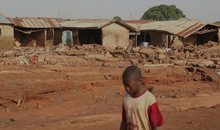
At least 150 dead in Nigeria floods
2025-06-01 16:14:26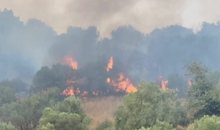
Flames engulf the Darëzeza forest massif in Fier
2025-06-01 15:56:41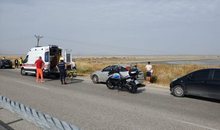

SHBA-ja i dërgon Iranit një propozim për marrëveshje bërthamore
2025-06-01 14:54:11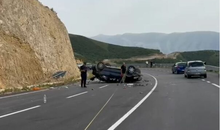
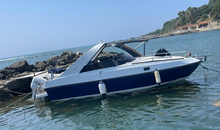

Moroccan immigrant commits suicide, activists protest in front of Gjadri camp
2025-06-01 13:48:17
PSG victory celebrations turn into tragedy, two dead, over 500 arrested
2025-06-01 13:26:33

Kosovo-Albania arms trafficking, Tirana Court leaves 8 arrested in prison
2025-06-01 12:41:11
Foreign worker dies at work, engineer of construction firm arrested in Tirana
2025-06-01 12:20:27
Car hits motorbike, 25-year-old dies in Bilisht
2025-06-01 11:56:56

Why doesn't the Vatican recognize the state of Kosovo?
2025-06-01 11:22:07

22-year-old arrested in Durrës, cocaine doses found hidden in his car
2025-06-01 10:40:20
Merz to meet Trump in Washington on June 5
2025-06-01 10:18:13
Today, June 1st, is World Children's Day.
2025-06-01 10:01:13
Foreign exchange, the rate at which foreign currencies are sold and bought
2025-06-01 09:47:21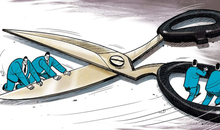
After the elections, the "fiscal peace" ends, the "war" begins
2025-06-01 09:24:30
PSG defeats Inter, grabs Champions League trophy
2025-06-01 09:08:08

Horoscope, what do the stars have in store for you today?
2025-06-01 08:40:10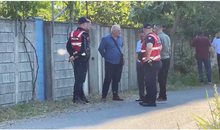
Serious in Tale, Lezha! 57-year-old man executed in the yard of his apartment
2025-06-01 08:25:55
Temperatures up to 31 degrees Celsius, weather forecast
2025-06-01 08:15:33
Morning Post/ In 2 lines: What mattered yesterday in Albania
2025-06-01 08:01:33
Anemia increases in the population
2025-05-31 22:18:38
Elections, Noka: A farce took place in Albania on May 11
2025-05-31 21:44:55


Jola Hysaj after the result in Durrës: The vote may have been alienated
2025-05-31 20:37:16

He was shot by his compatriot in Podgorica, the young 23-year-old Albanian dies
2025-05-31 19:58:13


Ndërtime pa siguri? Humb jetën punëtori boshnjak në Tiranë
2025-05-31 18:59:42


Russian attacks kill at least seven people in Ukraine
2025-05-31 17:35:43
Study: Half of the world experienced one more month of summer in 2024
2025-05-31 17:10:40
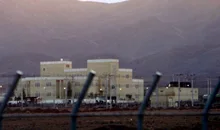



Tragedy in Germany, small plane crashes into a residential complex, two dead
2025-05-31 15:24:43


Wanted by German authorities, 22-year-old arrested at Morina border crossing
2025-05-31 14:39:44

Threat or protection? Rama's stances towards SPAK spark contradictions
2025-05-31 13:54:59


The poisoning of children in Gramsh, proof of the destruction of state control!
2025-05-31 12:59:40

Car full of contraband cigarette cartons, 48-year-old arrested in Kapshtica
2025-05-31 12:30:43


All the people (patronage) police
2025-05-31 11:59:12
Dështon edhe seanca e 24-t, nuk ka konstituim të Kuvendit të Kosovës
2025-05-31 11:39:38



High flow of travelers at the Morina border crossing during the weekend
2025-05-31 10:20:31
Berisha will participate in the EPP Political Assembly in Brussels on June 3-4
2025-05-31 09:58:13

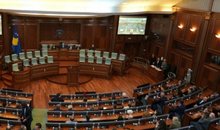
Today is the 24th attempt to constitute the Assembly in Kosovo
2025-05-31 08:58:30
Horoscope, discover the star forecast for your sign
2025-05-31 08:39:28
Weather forecast, how temperatures will vary throughout the day
2025-05-31 08:19:07
Morning Post/ In 2 lines: What mattered yesterday in Albania
2025-05-31 08:01:14



Bomb alert in a hotel in Tirana, what the police discovered
2025-05-30 22:05:17
The myth of 'eight hours of sleep' is debunked, here's what you need to consider
2025-05-30 22:01:55
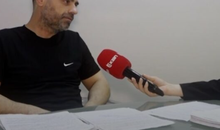
For 7 million Lek maintenance pension, the bailiff seizes his house
2025-05-30 21:42:00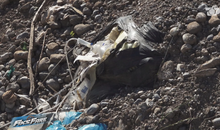



Video/ Bomb alarm in the parking lot of a hotel in Tirana, the police react
2025-05-30 20:59:35
Shots fired in Durres, one injured
2025-05-30 20:50:12
Bomb alert in the parking lot of a hotel in Tirana!
2025-05-30 20:25:46
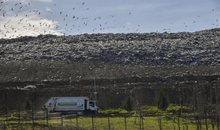


"You know who buys votes", DP official publishes video: A witness ready for SPAK
2025-05-30 19:35:50

Kurti meets with members of the US Congressional staff
2025-05-30 18:59:14
The car is engulfed in flames on the Tirana-Durrës highway, what is suspected
2025-05-30 18:44:32